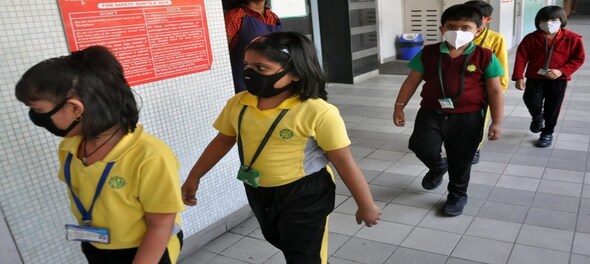
"Schools need to be re-opened in a phased manner (beginning with primary schools followed by secondary schools) and allowed to remain open and safe with appropriate multi-layered mitigation measures," says India's premier medical body Indian Council of Medical Research.
In a paper published in the Indian Journal of Medical Research, ICMR says global evidence suggests schools as ‘non-drivers’ of transmission of SARS-CoV-2 infection in the community. There is ample evidence to suggest that children aged 1-17 years have similar susceptibility to a mild form of SARS-CoV-2 infection as in adults, however, the risk of severe disease and mortality in children when compared to adults is much less. Other factors to consider also is that there is less onward transmission of SARS-CoV-2 infection by younger children than older children and adults.
Since vaccination is the key to prevent severe disease, ICMR calls for prioritising vaccination for children above 12 years of age. "Available evidence suggests that children aged 12 years and above are at a high risk of contracting the infection and therefore must be prioritized for vaccination compared to the younger children." COVID-19 vaccine trials for children and adolescents are currently ongoing in India. Zydus Cadila vaccine that conducted trials on children above 12 years has been cleared by the regulator, however advisory on use on children is still awaited.
The paper is authored by ICMR chief Balram Bhargava, Head of Epidemiology Samiran Panda and Tanu Anand and throws light on the impact of prolonged school closures on overall development of children, both literary and social and calls for the need to continue physical schools.
Referring to global data from United Kingdom, ICMR paper says reopening of schools with younger children was unlikely to push the reproductive number (R) above one while reopening secondary schools resulted in more number of cases as older students had their respective family members infected as well, while another school setting in Ireland did not report any secondary transmission.
ICMR Chief Balram Bhargava last month, during a press briefing, had called for the reopening of primary schools ahead of secondary schools owing to less infection risk in children.
Prolonged schools closures have impacted learning and also had an impact on the social, physical and mental growth of children. In India, the already widened learning inequities were widened. However, the lack of scientific consensus on an appropriate time and approach to restore in-person learning among school children in India, even after 18 months into the pandemic has put education on the back burner.
ICMR paper calls for a series of measures to bring physical and social distancing, with staggered timing, alternate day schools, hybrid learning with online classes for compromised children. Alternate class arrangements in well-ventilated areas, hallrooms, open garden areas is advised. ICMR says frequent testing of school staff and students for early detection of cases is essential to prevent outbreaks. However routine temperature or symptom checking in schools should be avoided due to limited evidence on their utility. Schools have been recommended to have onsite testing facilities and temporary or localized closures of a class or school may occur depending upon the local community transmission levels or if COVID-19 indicators worsen.
Paper says benefits of reopening of school during the present scenario of COVID-19 in India (post-second wave) therefore, need to be assessed against the associated risks. Evidence indicates that restoration of functioning of the education system as it was in pre-COVID times, as early as possible appears prudent in the current Indian context.
(Edited by : Priyanka Deshpande)
Check out our in-depth Market Coverage, Business News & get real-time Stock Market Updates on CNBC-TV18. Also, Watch our channels CNBC-TV18, CNBC Awaaz and CNBC Bajar Live on-the-go!


Prajwal Revanna's father in custody for alleged kidnapping and sexual abuse
May 4, 2024 7:53 PM
Delhi, Indore, Surat and Banswara — why these are the most challenging domains for Congress internally
May 4, 2024 1:53 PM
Congress nominee from Puri Lok Sabha seat withdraws, citing no funds from party
May 4, 2024 12:00 PM
Lok Sabha Polls '24 | Rahul Gandhi in Rae Bareli, why not Amethi
May 4, 2024 9:43 AM

